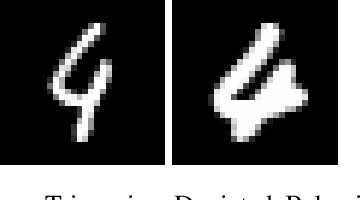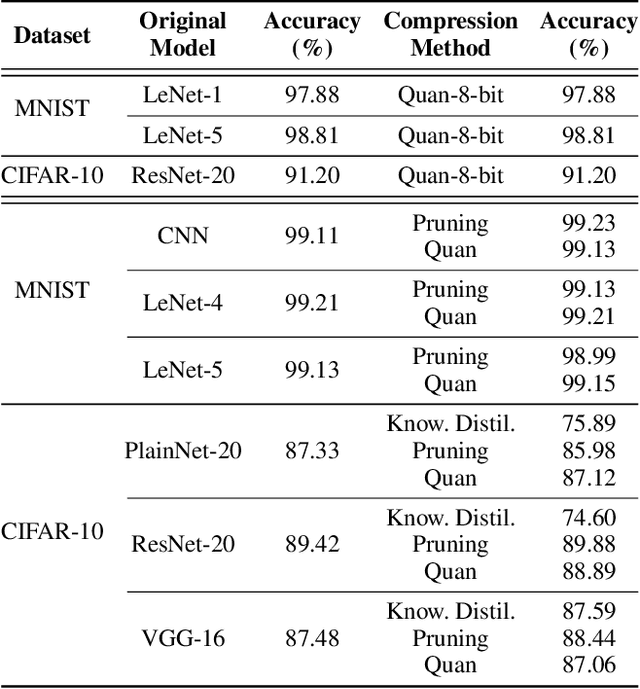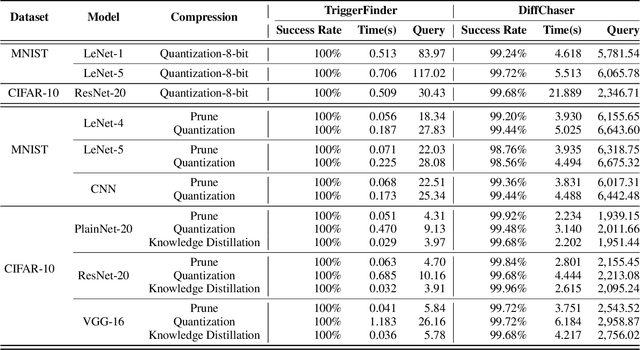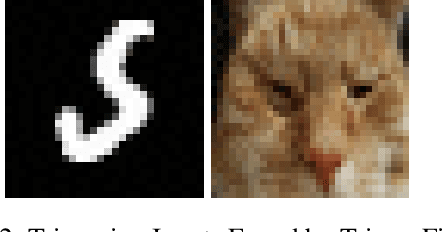Fast Test Input Generation for Finding Deviated Behaviors in Compressed Deep Neural Network
Paper and Code
Dec 06, 2021



Model compression can significantly reduce sizes of deep neural network (DNN) models so that large, sophisticated models after compression can be deployed on resource-limited mobile and IoT devices. However, model compression often introduces deviated behaviors into a compressed model: the original and compressed models output different prediction results for the same input. Hence, it is critical to warn developers and help them comprehensively evaluate possible consequences of such behaviors before deployment. To this end, we propose TriggerFinder, a novel, effective and efficient testing approach to automatically identifying inputs to trigger deviated behaviors in compressed models. Given an input i as a seed, TriggerFinder iteratively applies a series of mutation operations to change i until the resulting input triggers a deviated behavior. However, compressed models usually hide their architecture and gradient information; without such internal information as guidance, it becomes difficult to effectively and efficiently trigger deviated behaviors. To tackle this challenge, we propose a novel fitness function to determine the mutated input that is closer to the inputs that can trigger the deviated predictions. Furthermore, TriggerFinder models this search problem as a Markov Chain process and leverages the Metropolis-Hasting algorithm to guide the selection of mutation operators. We evaluated TriggerFinder on 18 compressed models with two datasets. The experiment results demonstrate that TriggerFinder can successfully find triggering inputs for all seed inputs while the baseline fails in certain cases. As for efficiency, TriggerFinder is 5.2x-115.8x as fast as the baselines. Furthermore, the queries required by TriggerFinder to find one triggering input is only 51.8x-535.6x as small as the baseline.
 Add to Chrome
Add to Chrome Add to Firefox
Add to Firefox Add to Edge
Add to Edge